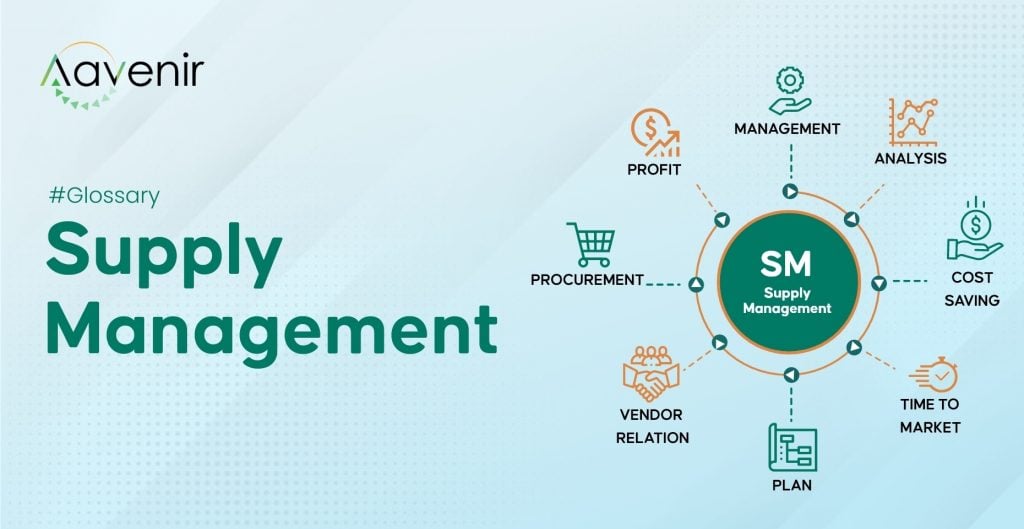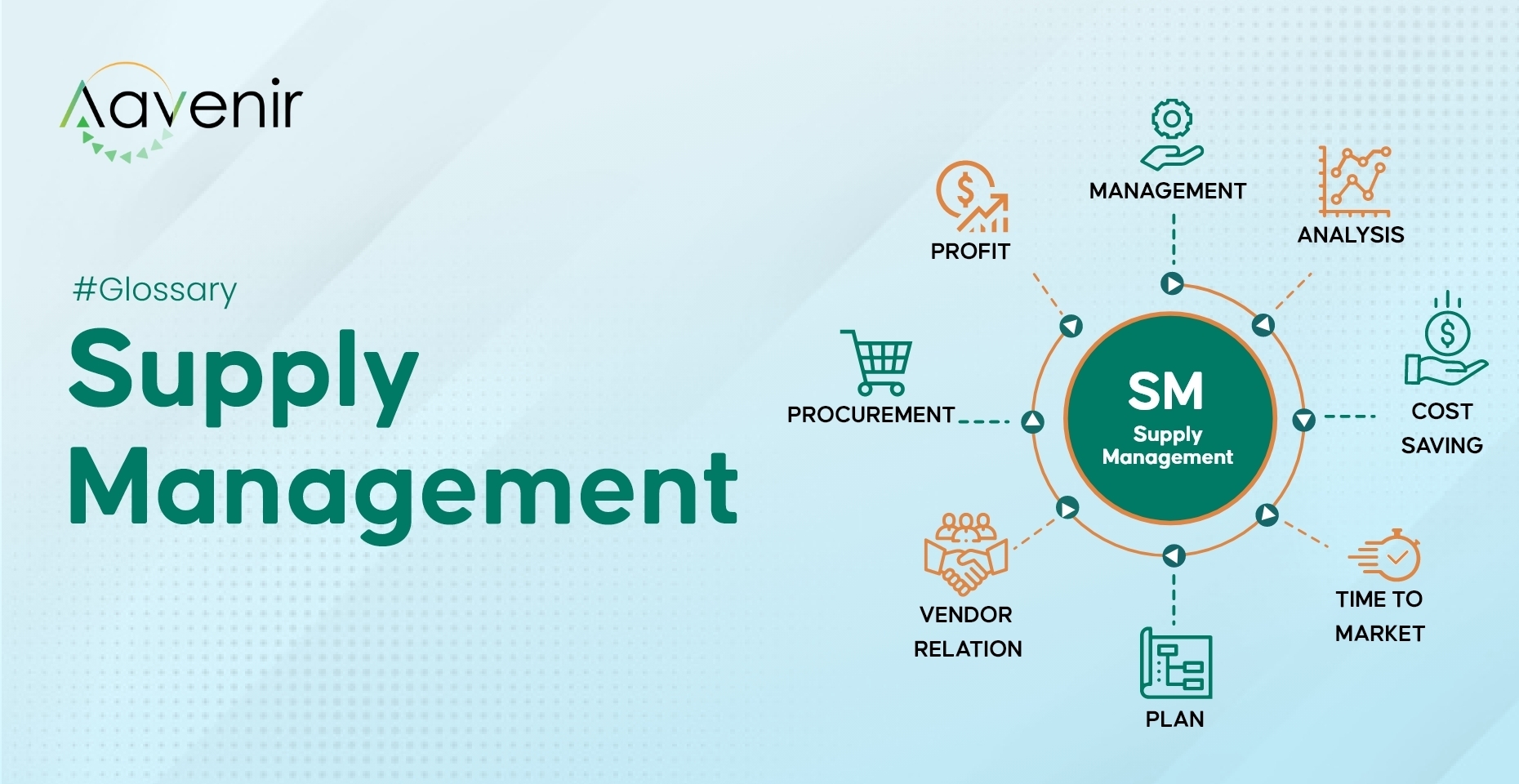What is Supply Management?
Supply Management refers to the act of finding, procuring, and managing resources & suppliers critical to an organization’s operations.

Supply management, often known as procurement, includes purchasing physical items, information, services, and other resources required by a business to continue operating and growing.
Understanding Supply Management
Most people think of supply management as to how businesses acquire raw materials and completed items. However, supply management encompasses more than purchasing things and contracting for services. It is a systematic business process that includes the coordination of pre-production logistics & inventory management, besides budgets, employees, and other critical information to keep the firm running smoothly.
The primary goals of supply management are cost control, efficient resource allocation, risk management, and effective collection of information for use in strategic business decisions.
The supply management professionals of an organization or an institution are generally in charge of the following:
- Identifying, sourcing, negotiating and procuring a good or service critical to a firm’s continuous operations according to the wishes of the organization’s leaders and supervisors.
- Creating and implementing a strategy for developing and maintaining supplier relationships and also holding suppliers accountable
- Utilizing the latest technology and procedures to make the procurement process easier
Special Considerations
Supply management divisions of large organizations can be pretty broad, with large budgets and hundreds of employees. Typically, their performance is judged by how much money they can save the organization.
For example, the capacity of a company to meet supply management objectives can directly impact the stock price by enhancing KPIs such as gross and net margins, cash flow, and cost of goods sold (COGS).
Proper risk management is also critical to a company’s success.
For example, anticipating and reducing the impact of interruption in delivering a crucial component can keep a business functioning smoothly. However, failing to account for risk in a company’s supply chain can be disastrous.
While it is simple to see how supply management influences the performance of a large purchaser or manufacturer, supply management is as vital to service-based businesses. When combined with overall enhancements to global logistical networks, the internet has helped make supply management into a significant strategic objective at most large corporations, capable of saving millions and enhancing efficiency company-wide.
Important Benefits of Supply Management
- Better collaboration with suppliers
- Better quality control
- Reduced inventory and overhead costs
- Improved risk mitigation
- Stronger cash flow
- More agile business
- Better visibility and data analytics
Supply Management vs. Supply Chain Management
The terms supply management and supply chain management are interchangeable. The distinction between supply management and supply chain management is that supply management represents only a subset of supply chain management operations, encompassing a narrow range of internal mechanisms. There would be no supply chain management if supply management existed.
Supply management becomes increasingly important as organizations adopt more robust materials management practices. Supply began to work closely with other materials departments to understand the impact of inventory carrying costs on supply decisions.
In doing this, supply personnel better understood transportation and the substantial savings generated through joint efforts. Relationships improved significantly, and departments worked more closely as united teams under the materials manager.
Supply chain management evolved from this collaborative approach and combined supply management with additional departments.
« Back to Glossary Index

